Healthy Aging: Promoting Wellness and Well-being in Older Adults
"Welcome to our blog, where we delve into the wonderful world of wellness and well-being for older adults. Aging is a natural part of life, and it's essential to prioritize our health and well-being as we navigate this journey. Promoting wellness and maintaining good health become even more critical as we age, as they contribute to a higher quality of life and enable us to enjoy our golden years to the fullest.
By actively investing in our wellness, we can experience numerous benefits that positively impact our physical, mental, and emotional well-being. Maintaining good health as we age allows us to stay independent, pursue our passions, and continue to engage in activities that bring us joy. It enables us to maintain strong relationships with loved ones and actively participate in the community.Furthermore, prioritizing wellness and well-being can help prevent or manage common health conditions that may arise with age. By adopting healthy lifestyle habits, we can reduce the risk of chronic diseases, maintain optimal cognitive function, and enhance our overall vitality. Taking charge of our health empowers us to live life on our terms, with the energy and vitality to embrace each day with enthusiasm.
According to the World Health Organization (WHO), the global population aged 60 years or older is projected to reach 2 billion by 2050. The United Nations estimates that the proportion of people aged 60 years and older will nearly double from 12% to 22% between 2015 and 2050. By 2100, it is projected that the number of people aged 80 years or older will reach 1 in 10 of the global population.
According to the World Health Organization (WHO), the global population aged 60 years or older is projected to reach 2 billion by 2050. The United Nations estimates that the proportion of people aged 60 years and older will nearly double from 12% to 22% between 2015 and 2050. By 2100, it is projected that the number of people aged 80 years or older will reach 1 in 10 of the global population.
In Asian, Japan has one of the world's oldest populations, with over 28% of its population aged 65 years or older. South Korea is experiencing a rapid increase in its aging population, with the proportion of people aged 65 years or older projected to reach 40% by 2060. China, the world's most populous country, has a large aging population, with over 264 million people aged 60 years or older.
In Singapore, the proportion of residents aged 65 years and above is expected to nearly double from 14% in 2019 to 25% by 2030, according to the Ministry of Health. The number of residents aged 80 years and above is also projected to triple from 100,000 in 2019 to 300,000 by 2030. Singapore's life expectancy has increased significantly over the years, with the average life expectancy reaching 84.7 years in 2020.
In this blog post, we will explore various aspects of promoting wellness and well-being in the aging population. We'll uncover strategies for physical fitness, delve into the importance of nutrition, discuss cognitive stimulation and mental well-being, address stress management, and highlight the significance of healthy sleep habits.
Join us on this journey as we discover the keys to aging gracefully and embracing a life of wellness and vitality. It's never too late to invest in our health, and by doing so, we can create a future filled with joy, fulfillment, and the ability to thrive in our golden years."
Regular exercise plays a crucial role in promoting physical well-being among older adults. Engaging in physical activity not only helps maintain a healthy weight but also offers numerous benefits that contribute to overall vitality and quality of life. Let's explore the significance of regular exercise and its impact on physical well-being, along with some examples of suitable exercises for older adults.
1. Significance of Regular Exercise
Regular exercise is associated with a wide range of health benefits for older adults. It helps improve cardiovascular health, increases muscle strength and endurance, enhances flexibility, and promotes better bone health. Regular physical activity also boosts mood, reduces the risk of chronic diseases, and improves cognitive function. It plays a vital role in maintaining independence and reducing the risk of falls and injuries.
2. Examples of Suitable Exercises
There are various types of exercises that are well-suited for older adults. Low-impact aerobic exercises like brisk walking, swimming, or cycling are gentle on the joints while providing cardiovascular benefits. These activities can be tailored to individual fitness levels and preferences. Yoga and tai chi are excellent options for improving flexibility, balance, and promoting relaxation.
Maintaining a healthy weight is essential for overall health and well-being. Regular exercise, combined with a balanced diet, helps manage weight and prevent obesity-related health issues. In addition to cardiovascular exercise, incorporating strength training exercises into the fitness routine is crucial. Strength training helps build and maintain muscle mass, improves bone density, and enhances functional abilities. Simple exercises like bodyweight squats, resistance band workouts, or lifting light weights can be effective.
Stay tuned as we explore other dimensions of wellness for older adults, including nutrition, cognitive stimulation, emotional well-being, and more. Together, let's embrace a holistic approach to aging that nurtures our bodies and enriches our lives with vitality and joy.
Nutrition for Healthy Aging: Fueling Your Body for Optimal Well-being
Certain nutrients are particularly beneficial for older adults due to their roles in maintaining bone health, cognitive function, and overall well-being. Calcium is crucial for strong bones and can be found in dairy products, leafy greens, and fortified foods. Vitamin D aids in calcium absorption and is found in fatty fish, fortified dairy products, and sunlight exposure. Omega-3 fatty acids, found in fatty fish, walnuts, and flaxseeds, have anti-inflammatory properties and support brain health.
3. Nutrient-rich Foods for Healthy Aging
Including nutrient-rich foods in your diet is important for meeting your body's nutritional needs. Berries and colorful fruits are packed with antioxidants and vitamins. Dark leafy greens like spinach and kale are rich in vitamins A, C, and K, as well as calcium and fiber. Whole grains like quinoa, brown rice, and oats provide fiber and essential nutrients. Lean proteins such as fish, poultry, beans, and tofu support muscle health and repair.
Cognitive Stimulation and Mental Well-being: Nurturing the Mind for Lifelong Vitality
As we age, it's crucial to prioritize cognitive stimulation and mental well-being. Keeping the mind active and engaged plays a significant role in maintaining cognitive function, preventing cognitive decline, and promoting overall mental well-being. Let's explore the importance of cognitive stimulation and discover activities that can enhance mental acuity and foster a vibrant mind.
Cognitive stimulation involves engaging in activities that challenge the mind, stimulate neural pathways, and promote cognitive health. It helps maintain cognitive function, memory, and attention span, reducing the risk of cognitive decline and related conditions, such as dementia. By actively participating in cognitive activities, we can enhance our mental agility, creativity, and problem-solving abilities.
2. Activities that Promote Cognitive Stimulation
There are various activities that can provide cognitive stimulation and keep the mind sharp:
Reading: Dive into a good book, explore different genres, and engage your imagination. Reading exposes us to new ideas, expands our knowledge, and strengthens cognitive abilities.
Puzzles and Brain Teasers: Challenge yourself with puzzles, crosswords, sudoku, or brain teasers. These activities exercise problem-solving skills, memory, and critical thinking.
Learning New Skills: Embrace lifelong learning by acquiring new skills or hobbies. Whether it's playing a musical instrument, learning a new language, or exploring art or crafts, acquiring new knowledge enhances cognitive abilities and fosters a sense of accomplishment.
Social Interaction: Engage in social activities that stimulate conversation, such as joining clubs, participating in group discussions, or attending social events. Social interaction provides mental stimulation, encourages cognitive flexibility, and combats feelings of loneliness or isolation.
Digital Brain Training Programs: Explore digital brain training programs or apps specifically designed to improve cognitive function. These programs offer a range of exercises targeting memory, attention, and problem-solving skills.
1. Strategies for Managing Stress
Stress is a natural part of life, but chronic stress can have detrimental effects on our physical and emotional health. Practicing stress management techniques can help us navigate challenging situations more effectively. Mindfulness exercises, such as meditation or deep breathing techniques, promote relaxation and help us stay present in the moment. Engaging in relaxation practices like yoga, tai chi, or gentle stretching can also help reduce stress levels.
In this blog post, we will explore various aspects of promoting wellness and well-being in the aging population. We'll uncover strategies for physical fitness, delve into the importance of nutrition, discuss cognitive stimulation and mental well-being, address stress management, and highlight the significance of healthy sleep habits.
Join us on this journey as we discover the keys to aging gracefully and embracing a life of wellness and vitality. It's never too late to invest in our health, and by doing so, we can create a future filled with joy, fulfillment, and the ability to thrive in our golden years."
1. Significance of Regular Exercise
Regular exercise is associated with a wide range of health benefits for older adults. It helps improve cardiovascular health, increases muscle strength and endurance, enhances flexibility, and promotes better bone health. Regular physical activity also boosts mood, reduces the risk of chronic diseases, and improves cognitive function. It plays a vital role in maintaining independence and reducing the risk of falls and injuries.
2. Examples of Suitable Exercises
There are various types of exercises that are well-suited for older adults. Low-impact aerobic exercises like brisk walking, swimming, or cycling are gentle on the joints while providing cardiovascular benefits. These activities can be tailored to individual fitness levels and preferences. Yoga and tai chi are excellent options for improving flexibility, balance, and promoting relaxation.
3. Importance of Maintaining a Healthy Weight and Incorporating Strength Training
Maintaining a healthy weight is essential for overall health and well-being. Regular exercise, combined with a balanced diet, helps manage weight and prevent obesity-related health issues. In addition to cardiovascular exercise, incorporating strength training exercises into the fitness routine is crucial. Strength training helps build and maintain muscle mass, improves bone density, and enhances functional abilities. Simple exercises like bodyweight squats, resistance band workouts, or lifting light weights can be effective.
4. Benefits of Staying Active
Staying active as we age has a multitude of benefits. It improves mobility, balance, and flexibility, reducing the risk of falls and promoting independence. Regular physical activity supports healthy aging by reducing the risk of chronic conditions such as heart disease, diabetes, and osteoporosis. It enhances overall physical function, making daily activities easier and more enjoyable. Additionally, exercise has been shown to boost cognitive function and improve mood, reducing the risk of depression and cognitive decline.
Staying active as we age has a multitude of benefits. It improves mobility, balance, and flexibility, reducing the risk of falls and promoting independence. Regular physical activity supports healthy aging by reducing the risk of chronic conditions such as heart disease, diabetes, and osteoporosis. It enhances overall physical function, making daily activities easier and more enjoyable. Additionally, exercise has been shown to boost cognitive function and improve mood, reducing the risk of depression and cognitive decline.
By incorporating regular exercise into your lifestyle, you can experience the positive effects it has on your physical well-being. Remember to consult with your healthcare provider before starting any new exercise program, especially if you have underlying health conditions. They can provide personalized guidance and recommendations based on your specific needs and abilities.
Stay tuned as we explore other dimensions of wellness for older adults, including nutrition, cognitive stimulation, emotional well-being, and more. Together, let's embrace a holistic approach to aging that nurtures our bodies and enriches our lives with vitality and joy.
Nutrition for Healthy Aging: Fueling Your Body for Optimal Well-being
A balanced diet plays a crucial role in supporting overall health and well-being, particularly as we age. Nourishing our bodies with the right nutrients helps maintain vitality, supports organ function, strengthens the immune system, and promotes healthy aging. Let's explore the importance of a balanced diet, key nutrients that are particularly beneficial for older adults, examples of nutrient-rich foods, and the significance of hydration in maintaining optimal health.
1. Importance of a Balanced Diet
A balanced diet is essential for providing the necessary nutrients, energy, and building blocks for our bodies. It helps maintain a healthy weight, supports proper digestion, and reduces the risk of chronic diseases such as heart disease, diabetes, and certain cancers. A well-rounded diet should include a variety of whole foods, including fruits, vegetables, whole grains, lean proteins, and healthy fats.
1. Importance of a Balanced Diet
A balanced diet is essential for providing the necessary nutrients, energy, and building blocks for our bodies. It helps maintain a healthy weight, supports proper digestion, and reduces the risk of chronic diseases such as heart disease, diabetes, and certain cancers. A well-rounded diet should include a variety of whole foods, including fruits, vegetables, whole grains, lean proteins, and healthy fats.
2. Key Nutrients for Older Adults
Certain nutrients are particularly beneficial for older adults due to their roles in maintaining bone health, cognitive function, and overall well-being. Calcium is crucial for strong bones and can be found in dairy products, leafy greens, and fortified foods. Vitamin D aids in calcium absorption and is found in fatty fish, fortified dairy products, and sunlight exposure. Omega-3 fatty acids, found in fatty fish, walnuts, and flaxseeds, have anti-inflammatory properties and support brain health.
3. Nutrient-rich Foods for Healthy Aging
Including nutrient-rich foods in your diet is important for meeting your body's nutritional needs. Berries and colorful fruits are packed with antioxidants and vitamins. Dark leafy greens like spinach and kale are rich in vitamins A, C, and K, as well as calcium and fiber. Whole grains like quinoa, brown rice, and oats provide fiber and essential nutrients. Lean proteins such as fish, poultry, beans, and tofu support muscle health and repair.
4. Significance of Hydration
Proper hydration is often overlooked but plays a vital role in maintaining optimal health. Water helps regulate body temperature, aids digestion, transports nutrients, and flushes out toxins. As we age, the sensation of thirst may decrease, making it important to consciously drink an adequate amount of water throughout the day. Herbal teas, infused water, and consuming water-rich foods like cucumbers and watermelon can also contribute to hydration.
Proper hydration is often overlooked but plays a vital role in maintaining optimal health. Water helps regulate body temperature, aids digestion, transports nutrients, and flushes out toxins. As we age, the sensation of thirst may decrease, making it important to consciously drink an adequate amount of water throughout the day. Herbal teas, infused water, and consuming water-rich foods like cucumbers and watermelon can also contribute to hydration.
By adopting a balanced and nutrient-rich diet, you can provide your body with the essential components it needs to thrive. Remember to consult with a healthcare professional or a registered dietitian for personalized dietary recommendations, especially if you have specific health conditions or dietary restrictions.
Cognitive Stimulation and Mental Well-being: Nurturing the Mind for Lifelong Vitality
As we age, it's crucial to prioritize cognitive stimulation and mental well-being. Keeping the mind active and engaged plays a significant role in maintaining cognitive function, preventing cognitive decline, and promoting overall mental well-being. Let's explore the importance of cognitive stimulation and discover activities that can enhance mental acuity and foster a vibrant mind.
1. The Importance of Cognitive Stimulation
Cognitive stimulation involves engaging in activities that challenge the mind, stimulate neural pathways, and promote cognitive health. It helps maintain cognitive function, memory, and attention span, reducing the risk of cognitive decline and related conditions, such as dementia. By actively participating in cognitive activities, we can enhance our mental agility, creativity, and problem-solving abilities.
2. Activities that Promote Cognitive Stimulation
There are various activities that can provide cognitive stimulation and keep the mind sharp:
Reading: Dive into a good book, explore different genres, and engage your imagination. Reading exposes us to new ideas, expands our knowledge, and strengthens cognitive abilities.
Puzzles and Brain Teasers: Challenge yourself with puzzles, crosswords, sudoku, or brain teasers. These activities exercise problem-solving skills, memory, and critical thinking.
Learning New Skills: Embrace lifelong learning by acquiring new skills or hobbies. Whether it's playing a musical instrument, learning a new language, or exploring art or crafts, acquiring new knowledge enhances cognitive abilities and fosters a sense of accomplishment.
Social Interaction: Engage in social activities that stimulate conversation, such as joining clubs, participating in group discussions, or attending social events. Social interaction provides mental stimulation, encourages cognitive flexibility, and combats feelings of loneliness or isolation.
Digital Brain Training Programs: Explore digital brain training programs or apps specifically designed to improve cognitive function. These programs offer a range of exercises targeting memory, attention, and problem-solving skills.
3. The Role of Social Connections and Lifelong Learning
Maintaining social connections and pursuing lifelong learning are vital components of cognitive stimulation and mental well-being. Social interactions provide opportunities for intellectual engagement, emotional support, and the sharing of experiences. Connecting with others can help combat feelings of loneliness or isolation, boost mood, and enhance cognitive function. Lifelong learning stimulates the brain, introduces new perspectives, and fosters a sense of curiosity, leading to ongoing personal growth and mental vitality.
By incorporating activities that promote cognitive stimulation, fostering social connections, and embracing lifelong learning, we can nurture our minds and enhance mental well-being. Remember, it's never too late to engage in cognitive activities and pursue new interests. Embrace the joy of learning, seek meaningful social connections, and challenge your mind to stay vibrant and agile.
Emotional Well-being: Cultivating Inner Balance for Optimal Health
Maintaining social connections and pursuing lifelong learning are vital components of cognitive stimulation and mental well-being. Social interactions provide opportunities for intellectual engagement, emotional support, and the sharing of experiences. Connecting with others can help combat feelings of loneliness or isolation, boost mood, and enhance cognitive function. Lifelong learning stimulates the brain, introduces new perspectives, and fosters a sense of curiosity, leading to ongoing personal growth and mental vitality.
By incorporating activities that promote cognitive stimulation, fostering social connections, and embracing lifelong learning, we can nurture our minds and enhance mental well-being. Remember, it's never too late to engage in cognitive activities and pursue new interests. Embrace the joy of learning, seek meaningful social connections, and challenge your mind to stay vibrant and agile.
Emotional Well-being: Cultivating Inner Balance for Optimal Health
Emotional well-being plays a vital role in our overall health and quality of life, especially as we age. It encompasses managing stress effectively, nurturing positive emotions, and fostering resilience in the face of challenges. By prioritizing our emotional well-being, we can enhance our overall health and find greater joy and fulfillment. Let's explore strategies for managing stress, the importance of seeking support, and engaging in activities that promote emotional well-being.
1. Strategies for Managing Stress
Stress is a natural part of life, but chronic stress can have detrimental effects on our physical and emotional health. Practicing stress management techniques can help us navigate challenging situations more effectively. Mindfulness exercises, such as meditation or deep breathing techniques, promote relaxation and help us stay present in the moment. Engaging in relaxation practices like yoga, tai chi, or gentle stretching can also help reduce stress levels.
2. The Importance of Seeking Support
During times of stress or emotional turmoil, seeking support is crucial. Friends, family members, or professionals can offer a listening ear, provide valuable advice, and offer different perspectives. Social connections and a support network can help alleviate feelings of loneliness and provide a sense of belonging. Don't hesitate to reach out when you need someone to lean on.
3. Engaging in Activities for Emotional Well-being
Engaging in activities that promote emotional well-being can have profound benefits for overall health. Hobbies, such as painting, gardening, or playing a musical instrument, provide a creative outlet and help reduce stress. Meditation and mindfulness practices cultivate inner calm and enhance self-awareness. Journaling allows us to express our thoughts and emotions, providing a sense of clarity and self-reflection.
4. The Benefits of Promoting Emotional Well-being
Promoting emotional well-being offers numerous benefits for our overall health and happiness. Managing stress effectively can lower the risk of chronic conditions such as heart disease, high blood pressure, and mental health disorders. Positive emotions and resilience contribute to improved cognitive function, better sleep quality, and enhanced social interactions. Prioritizing emotional well-being also fosters a sense of purpose and fulfillment in our daily lives.
By implementing strategies for managing stress, seeking support when needed, and engaging in activities that promote emotional well-being, we can cultivate inner balance and resilience. Remember that everyone's journey to emotional well-being is unique, so explore various techniques and find what works best for you.
Healthy Sleep Habits: Restoring Vitality through Quality Sleep
Quality sleep is essential for overall health and well-being, especially for older adults. It plays a crucial role in maintaining cognitive function, supporting physical health, and enhancing emotional well-being. However, sleep patterns can change as we age, making it important to prioritize healthy sleep habits. Let's explore the significance of quality sleep and discover practical tips for promoting good sleep hygiene.
1. The Importance of Quality Sleep
Quality sleep is vital for older adults as it supports various aspects of health. It plays a key role in cognitive function, memory consolidation, and mental clarity. Adequate sleep promotes physical restoration, helps regulate metabolism, and strengthens the immune system. Additionally, quality sleep contributes to emotional well-being, reducing the risk of mood disorders and enhancing overall mental health.
2. Tips for Promoting Good Sleep Hygiene
Establishing healthy sleep habits can improve the quality and duration of sleep. Consider incorporating the following practices into your routine:
Establish a Regular Sleep Schedule: Set a consistent sleep schedule by going to bed and waking up at the same time each day, even on weekends.
Create a Comfortable Sleep Environment: Ensure your bedroom is conducive to sleep. Keep the room dark, quiet, and at a comfortable temperature. Invest in a supportive mattress and pillows.
Practice Relaxation Techniques: Wind down before bed by engaging in relaxation techniques, such as reading a book, taking a warm bath, or practicing gentle stretching or yoga.
Limit Stimulants and Electronic Devices: Avoid consuming caffeine or alcohol close to bedtime, as they can disrupt sleep. Additionally, limit exposure to electronic devices, as the blue light emitted can interfere with sleep quality.
Establish a Bedtime Routine: Create a relaxing bedtime routine to signal to your body that it's time to sleep. This may include listening to calming music, practicing deep breathing exercises, or engaging in light stretching.
By implementing these tips for good sleep hygiene, you can create an optimal sleep environment and enhance the quality of your sleep. Prioritizing quality sleep will contribute to your overall health, well-being, and vitality.
Conclusion: Embracing a Holistic Approach to Healthy Aging
Remember, healthy aging is a personal journey, and it's never too late to start prioritizing your well-being. Begin by making small changes, such as incorporating physical activity into your daily routine, exploring new hobbies, and connecting with others who share your interests. Seek support from healthcare professionals, friends, and family members who can provide guidance and encouragement along the way.
By embracing a holistic approach to healthy aging, we can age gracefully, maintain our vitality, and enjoy a life filled with purpose and fulfillment. Let's cherish each day and make choices that nurture our well-being. Together, we can create a future where aging is celebrated and lived to its fullest potential.
Thank you for joining us on this exploration of wellness and well-being in the aging population. Stay tuned for more insights and practical tips on how to lead a fulfilling and healthy life as we continue this journey together.
During times of stress or emotional turmoil, seeking support is crucial. Friends, family members, or professionals can offer a listening ear, provide valuable advice, and offer different perspectives. Social connections and a support network can help alleviate feelings of loneliness and provide a sense of belonging. Don't hesitate to reach out when you need someone to lean on.
3. Engaging in Activities for Emotional Well-being
Engaging in activities that promote emotional well-being can have profound benefits for overall health. Hobbies, such as painting, gardening, or playing a musical instrument, provide a creative outlet and help reduce stress. Meditation and mindfulness practices cultivate inner calm and enhance self-awareness. Journaling allows us to express our thoughts and emotions, providing a sense of clarity and self-reflection.
4. The Benefits of Promoting Emotional Well-being
Promoting emotional well-being offers numerous benefits for our overall health and happiness. Managing stress effectively can lower the risk of chronic conditions such as heart disease, high blood pressure, and mental health disorders. Positive emotions and resilience contribute to improved cognitive function, better sleep quality, and enhanced social interactions. Prioritizing emotional well-being also fosters a sense of purpose and fulfillment in our daily lives.
By implementing strategies for managing stress, seeking support when needed, and engaging in activities that promote emotional well-being, we can cultivate inner balance and resilience. Remember that everyone's journey to emotional well-being is unique, so explore various techniques and find what works best for you.
Healthy Sleep Habits: Restoring Vitality through Quality Sleep
Quality sleep is essential for overall health and well-being, especially for older adults. It plays a crucial role in maintaining cognitive function, supporting physical health, and enhancing emotional well-being. However, sleep patterns can change as we age, making it important to prioritize healthy sleep habits. Let's explore the significance of quality sleep and discover practical tips for promoting good sleep hygiene.
1. The Importance of Quality Sleep
Quality sleep is vital for older adults as it supports various aspects of health. It plays a key role in cognitive function, memory consolidation, and mental clarity. Adequate sleep promotes physical restoration, helps regulate metabolism, and strengthens the immune system. Additionally, quality sleep contributes to emotional well-being, reducing the risk of mood disorders and enhancing overall mental health.
Establishing healthy sleep habits can improve the quality and duration of sleep. Consider incorporating the following practices into your routine:
Establish a Regular Sleep Schedule: Set a consistent sleep schedule by going to bed and waking up at the same time each day, even on weekends.
Create a Comfortable Sleep Environment: Ensure your bedroom is conducive to sleep. Keep the room dark, quiet, and at a comfortable temperature. Invest in a supportive mattress and pillows.
Practice Relaxation Techniques: Wind down before bed by engaging in relaxation techniques, such as reading a book, taking a warm bath, or practicing gentle stretching or yoga.
Limit Stimulants and Electronic Devices: Avoid consuming caffeine or alcohol close to bedtime, as they can disrupt sleep. Additionally, limit exposure to electronic devices, as the blue light emitted can interfere with sleep quality.
Establish a Bedtime Routine: Create a relaxing bedtime routine to signal to your body that it's time to sleep. This may include listening to calming music, practicing deep breathing exercises, or engaging in light stretching.
By implementing these tips for good sleep hygiene, you can create an optimal sleep environment and enhance the quality of your sleep. Prioritizing quality sleep will contribute to your overall health, well-being, and vitality.
Conclusion: Embracing a Holistic Approach to Healthy Aging
As we journey through life, it becomes increasingly important to prioritize our health and well-being, especially as we age. Promoting wellness and well-being in older adults requires a holistic approach that addresses physical, emotional, and mental dimensions of health. By incorporating regular exercise, nutritious eating habits, stress management techniques, quality sleep, and engaging in activities that bring us joy, we can foster a vibrant and fulfilling life.
Maintaining good health as we age offers a multitude of benefits. It allows us to maintain independence, pursue our passions, and continue contributing to our communities. It also helps prevent chronic diseases, boosts cognitive function, and enhances our overall quality of life.
Remember, healthy aging is a personal journey, and it's never too late to start prioritizing your well-being. Begin by making small changes, such as incorporating physical activity into your daily routine, exploring new hobbies, and connecting with others who share your interests. Seek support from healthcare professionals, friends, and family members who can provide guidance and encouragement along the way.
By embracing a holistic approach to healthy aging, we can age gracefully, maintain our vitality, and enjoy a life filled with purpose and fulfillment. Let's cherish each day and make choices that nurture our well-being. Together, we can create a future where aging is celebrated and lived to its fullest potential.
Thank you for joining us on this exploration of wellness and well-being in the aging population. Stay tuned for more insights and practical tips on how to lead a fulfilling and healthy life as we continue this journey together.

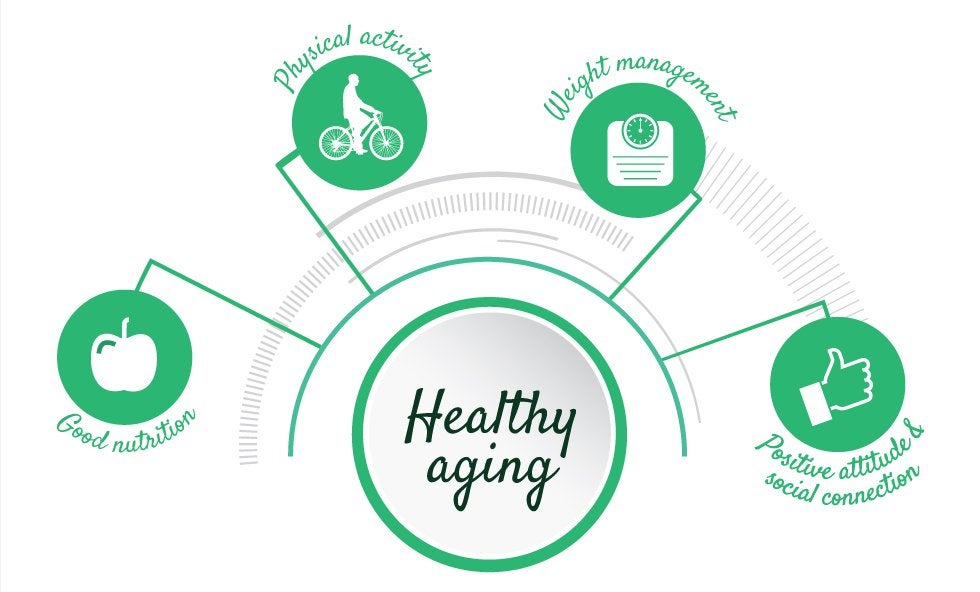


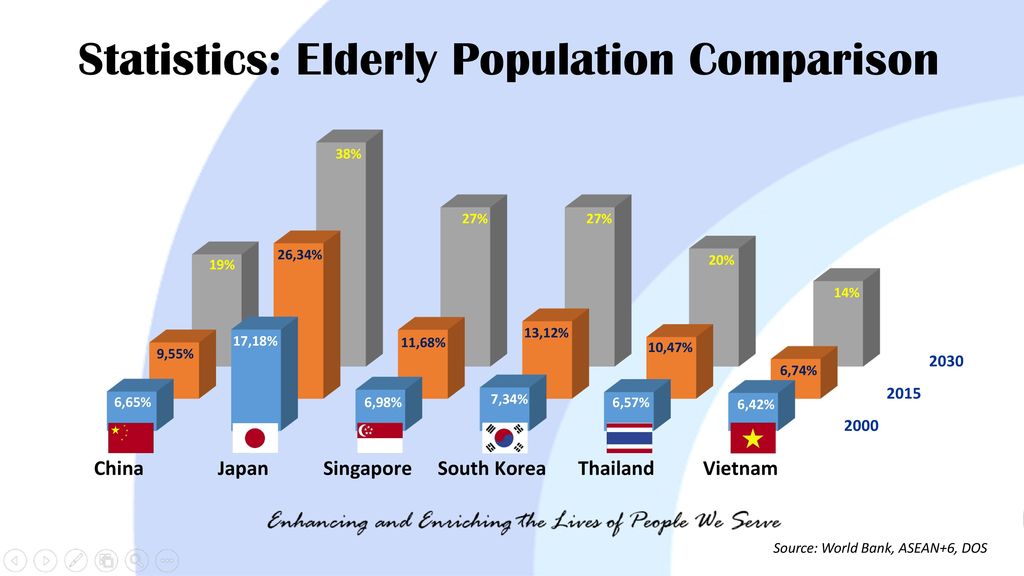
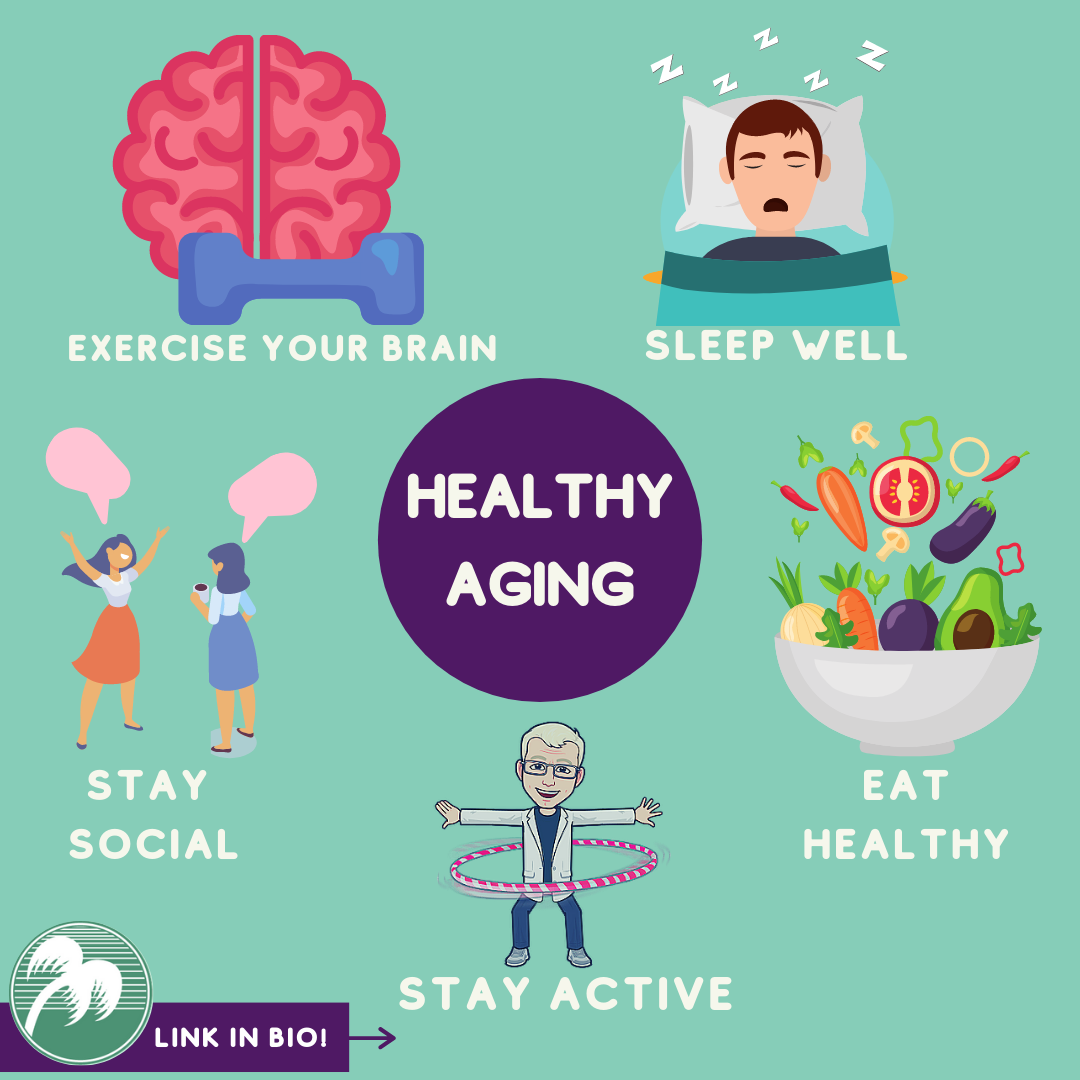







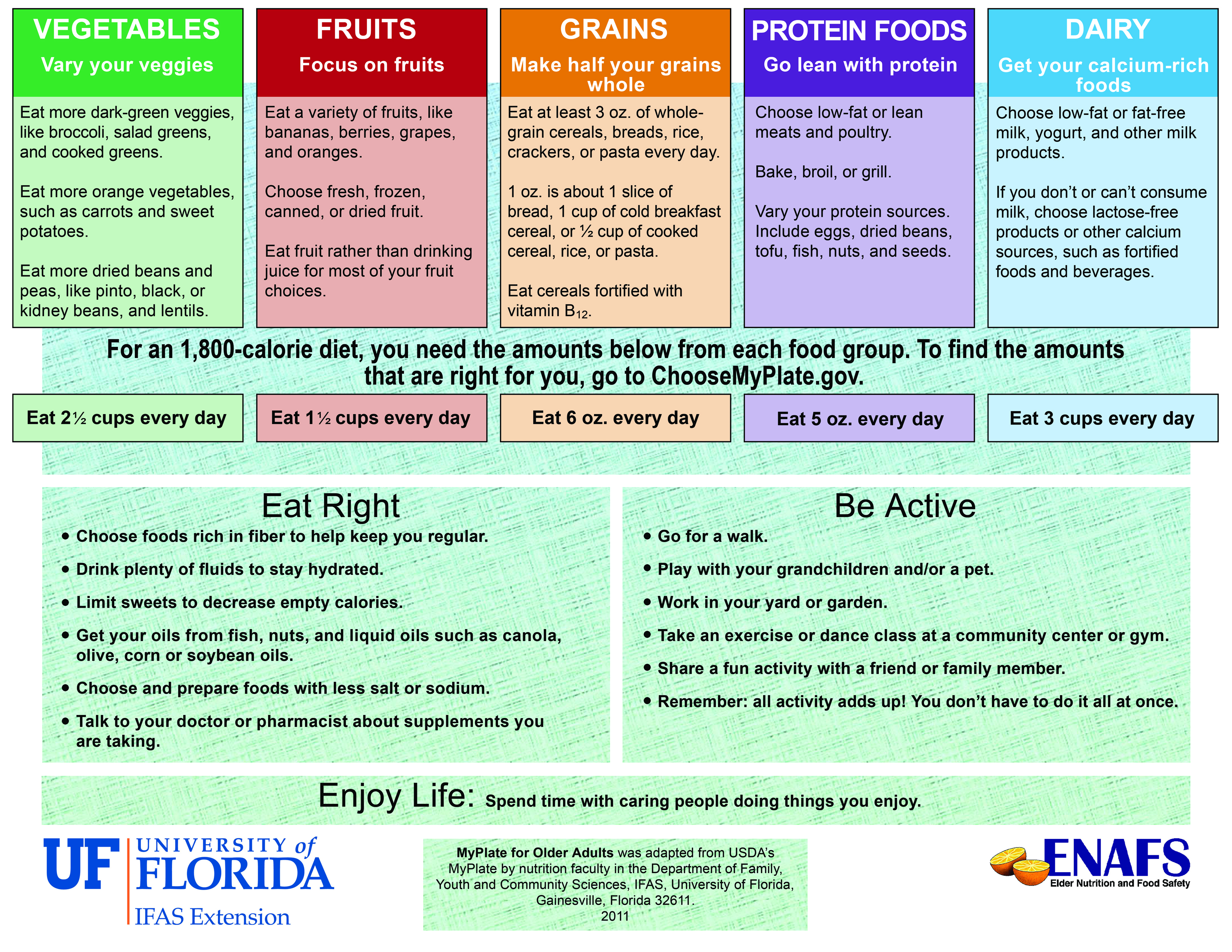
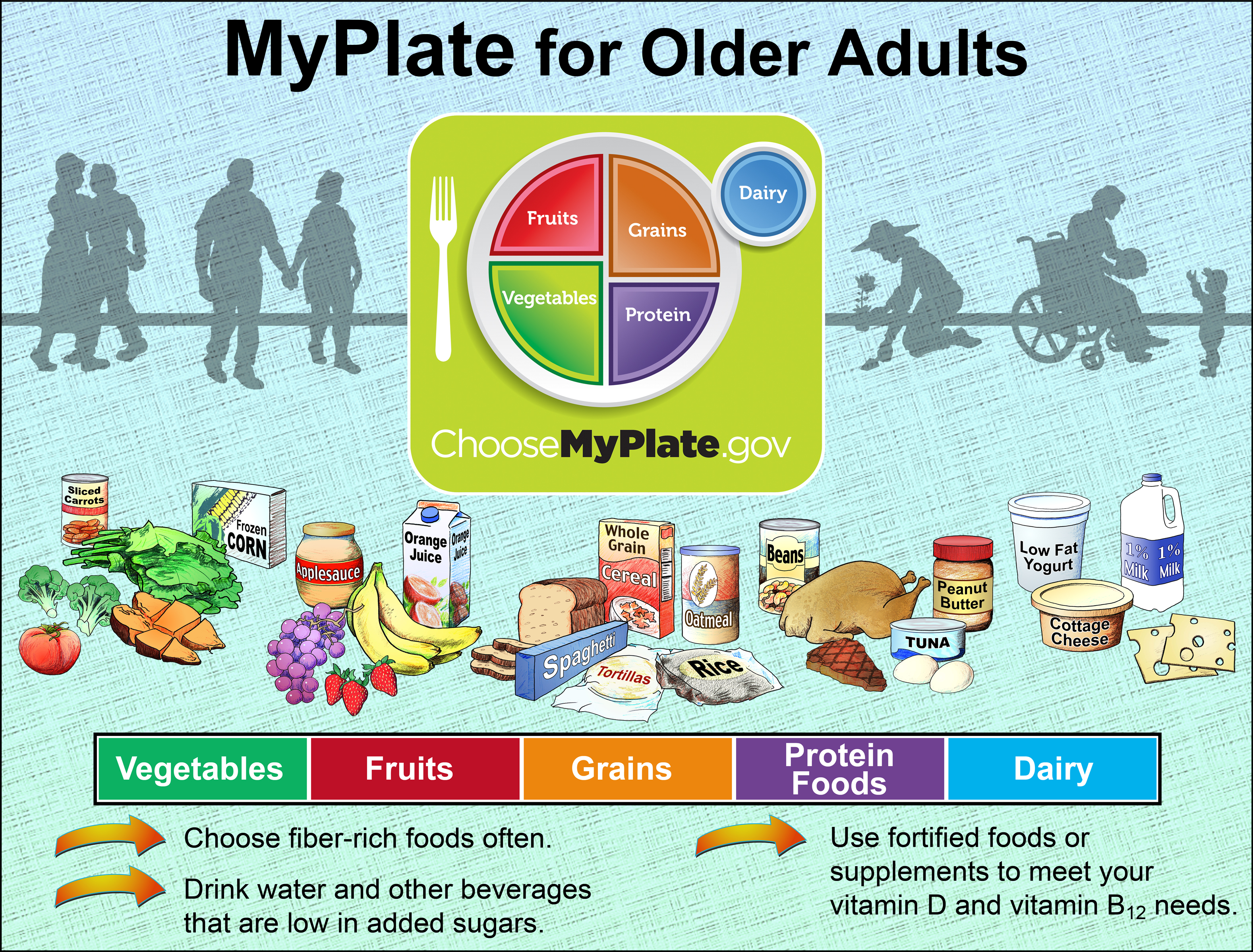
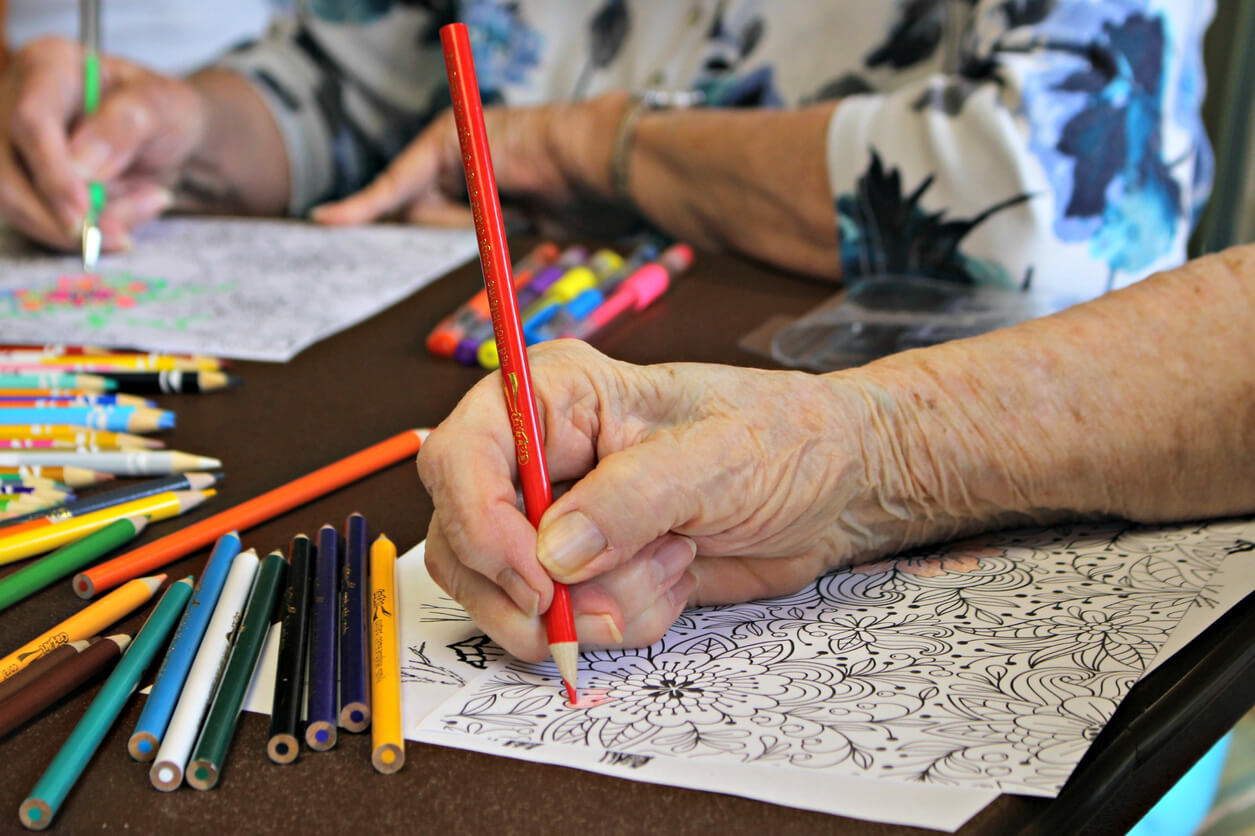


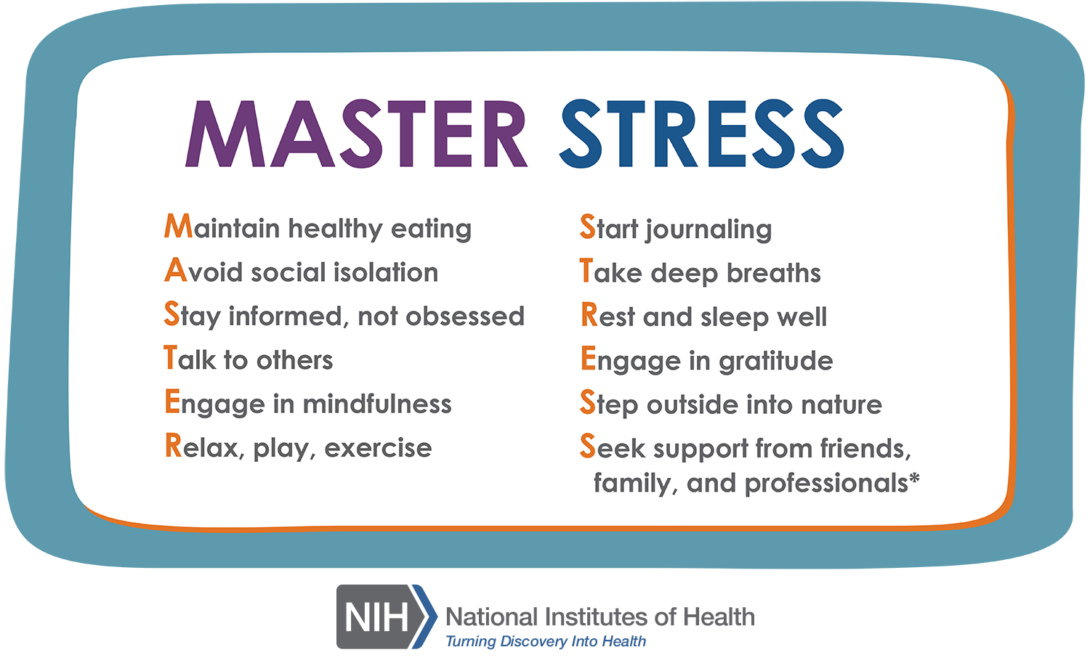
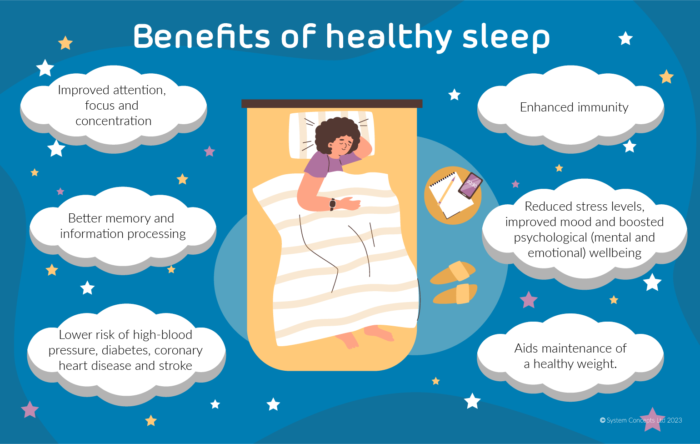
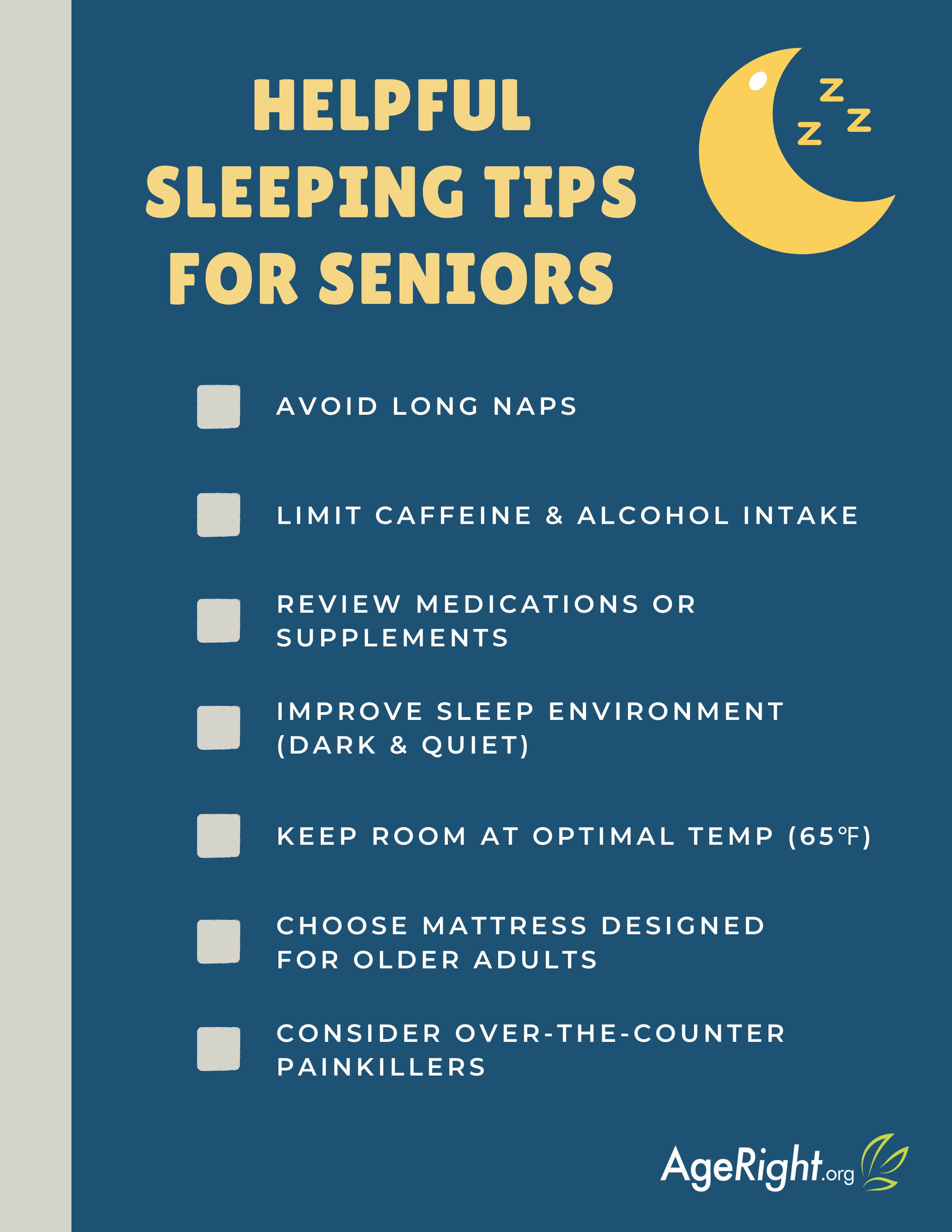


Comments
Post a Comment